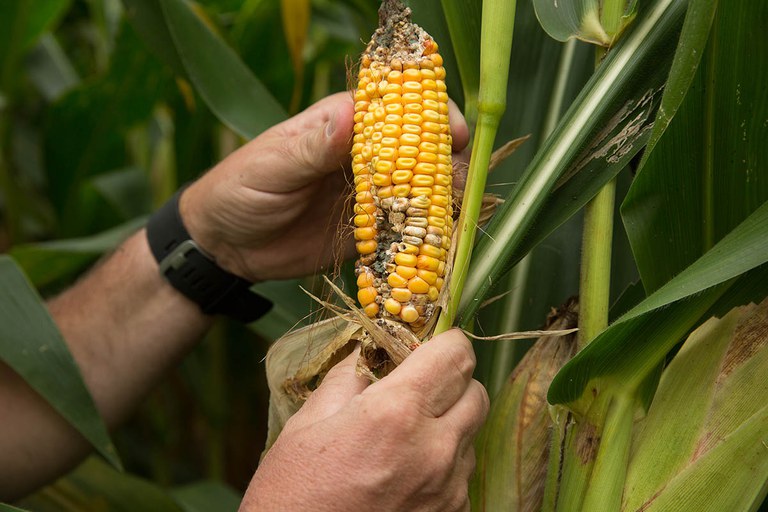Assessment details impact of pests and pathogens on the world’s major food crops
Problem
How can the impact of pests and pathogens on the world's five major food crops be precisely measured to protect global food security?
- Wheat, rice, maize, soybean, and potato supply 50 percent of the global human calorie intake.
Findings
An international team of plant pathologists developed an online survey to gather data on crop losses. They identified 137 specific pests and pathogens harming the five major food crops across sixty-seven countries.
- Wheat losses = 10–28 percent
- Rice losses = 24–41 percent
- Maize losses = 20–41 percent
- Soybean losses = 11–32 percent
- Potato losses = 8–21 percent
Impact
The team's quantification of crop losses helps guide research priorities by differentiating between chronic stressors on these crops.
- Develop resistant varieties as a long-term strategy.
- Identify emerging or reemerging stressors that require urgent action to contain them.
Related Research Areas: Advanced Agricultural and Food Systems and Environmental Resilience
Research Credit
Team
- Paul Esker, Serge Savary, Laetitia Willocquet, Neil McRoberts, Sarah Pethybridge, and Andy Nelson
Participating Department
Partners
- The International Society for Plant Pathology, French National Institute for Agricultural Research, University of California–Davis, Cornell University, University of Twente in the Netherlands, North Carolina State University
Competitive Funding
- Pennsylvania Department of Agriculture; American Mushroom Institute
Federal and State Appropriations
Emerging Discoveries
Assessment details impact of pests and pathogens on world’s major food crops
Published Research
The global burden of pathogens and pests on major food crops
- Savary, S., Willocquet, L., Pethybridge, S. J., Esker, P., McRoberts, N., & Nelson, A. (2019). The global burden of pathogens and pests on major food crops. Nature Ecology and Evolution>, 3(3), 430-439. https://doi.org/10.1038/s41559-018-0793-y
Office for Research and Graduate Education
Address
217 Agricultural Administration BuildingUniversity Park, PA 16802-2600
- Email agresearch@psu.edu
- Office 814-865-3136
Office for Research and Graduate Education
Address
217 Agricultural Administration BuildingUniversity Park, PA 16802-2600
- Email agresearch@psu.edu
- Office 814-865-3136



